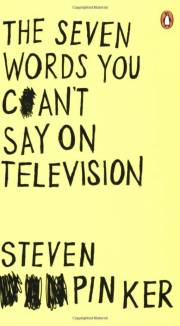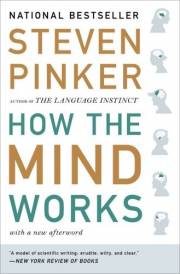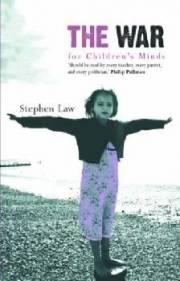Author: Victor J. Stenger | Year: 2006
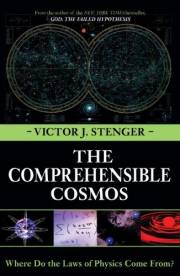
For those fascinated by how physics explains the universe and affects philosophy, this in-depth presentation of the cosmos, complete with an appendix of mathematical formulas, makes accessible to lay readers findings normally available only to professional scientists. In a series of remarkable developments in the 20th century and continuing into the 21st, elementary particle physicists, astronomers, and cosmologists have removed much of the mystery that surrounds our understanding of the physical universe.
Read more...
Author: Lawrence Krauss | Year: 2007
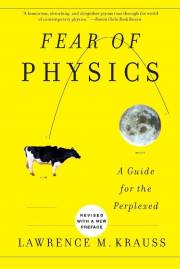
"Assume the cow is a sphere." So begins this lively, irreverent, and informative look at everything from the physics of boiling water to cutting-edge research at the observable limits of the universe. Rich with anecdotes and accessible examples, Fear of Physics nimbly ranges over the tools and thought behind the world of modern physics, taking the mystery out of what is essentially a very human intellectual endeavour.
Read more...
Author: Steven Pinker | Year: 2007

Bestselling author Steven Pinker possesses that rare combination of scientific aptitude and verbal eloquence that enables him to provide lucid explanations of deep and powerful ideas. His previous books, including the Pulitzer Prize finalist The Blank Slate, have catapulted him into the limelight as one of today's most important popular science writers. In The Stuff of Thought, Pinker presents a fascinating look at how our words explain our nature. Considering scientific questions with examples from everyday life, The Stuff of Thought is a brilliantly crafted and highly readable work that will appeal to fans of everything from The Selfish Gene and Blink to Eats, Shoots & Leaves.
Read more...
Author: Victor J. Stenger | Year: 2013
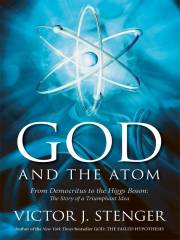
This history of atomism, from Democritus to the recent discovery of the Higgs boson, chronicles one of the most successful scientific hypotheses ever devised. Originating separately in both ancient Greece and India, the concept of the atom persisted for centuries, despite often running afoul of conventional thinking. Until the twentieth century, no direct evidence for atoms existed. Today it is possible to actually observe atoms using a scanning tunneling microscope.
Read more...
Author: Victor J. Stenger | Year: 2009
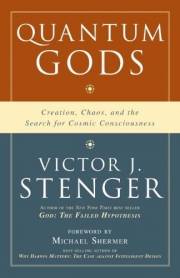
Does quantum mechanics show a connection between the human mind and the cosmos? Are our brains tuned into a "cosmic consciousness" that pervades the universe enabling us to make our own reality? Do quantum mechanics and chaos theory provide a place for God to act in the world without violating natural laws?
Read more...
Author: Victor J. Stenger | Year: 2003
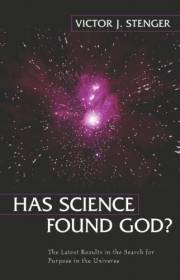
In the past few years a number of scientists have claimed that there is credible scientific evidence for the existence of God. In 1998 Newsweek went so far as to proclaim on its cover, "Science Finds God." Is this true? Are scientists close to solving the greatest of all mysteries? Physicist Victor J. Stenger delves into this fascinating question from a skeptical point of view in this lucid and engrossing presentation of the key scientific facts.
Read more...
Author: Victor J. Stenger | Year: 2011
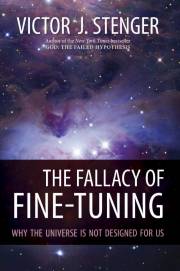
A number of authors have noted that if some physical parameters were slightly changed, the universe could no longer support life, as we know it. This implies that life depends sensitively on the physics of our universe. Does this "fine-tuning" of the universe suggest that a creator god intentionally calibrated the initial conditions of the universe such that life on earth and the evolution of humanity would eventually emerge? In his in-depth and highly accessible discussion of this fascinating and controversial topic, the author looks at the evidence and comes to the opposite conclusion. He finds that the observations of science and our naked senses not only show no evidence for God, they provide evidence beyond a reasonable doubt that God does not exist.
Read more...
Author: Victor J. Stenger | Year: 2009
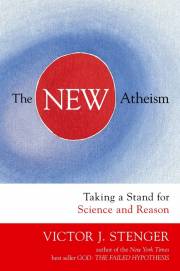
In recent years a number of bestselling books have forcefully argued that belief in God can no longer be defended on rational or empirical grounds, and that the scientific worldview has rendered obsolete the traditional beliefs held by Christianity, Judaism, and Islam. The authors of these booksÔÇöRichard Dawkins, Daniel Dennett, Sam Harris, Christopher Hitchens, and Victor J. StengerÔÇöhave come to be known as the "New Atheists." Predictably, their works have been controversial and attracted a good deal of critical reaction.
Read more...
Author: Victor J. Stenger | Year: 2012
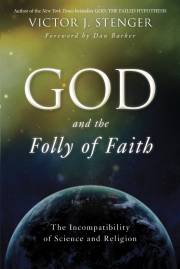
It has become the prevalent view among sociologists, historians, and some theistic scientists that religion and science have never been in serious conflict. Some even claim that Christianity was responsible for the development of science. In a sweeping historical survey that begins with ancient Greek science and proceeds through the Renaissance and Enlightenment to contemporary advances in physics and cosmology, Stenger makes a convincing case that not only is this conclusion false, but Christianity actually held back the progress of science for one thousand years. It is significant, he notes, that the scientific revolution of the seventeenth century occurred only after the revolts against established ecclesiastic authorities in the Renaissance and Reformation opened up new avenues of thought.
Read more...
Author: Victor J. Stenger | Year: 2010
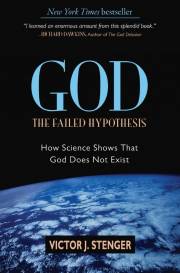
Throughout history, arguments for and against the existence of God have been largely confined to philosophy and theology, while science has sat on the sidelines. Despite the fact that science has revolutionized every aspect of human life and greatly clarified our understanding of the world, somehow the notion has arisen that it has nothing to say about the possibility of a supreme being, which much of humanity worships as the source of all reality. This physicist and author contends that, if God exists, some evidence for this existence should be detectable by scientific means, especially considering the central role that God is alleged to play in the operation of the universe and the lives of humans. Treating the traditional God concept, as conventionally presented in the Judeo-Christian and Islamic traditions, like any other scientific hypothesis, Stenger examines all of the claims made for God's existence. He considers the latest Intelligent Design arguments as evidence of God's influence in biology. He looks at human behavior for evidence of immaterial souls and the possible effects of prayer. He discusses the findings of physics and astronomy in weighing the suggestions that the universe is the work of a creator and that humans are God's special creation. After evaluating all the scientific evidence, Stenger concludes that beyond a reasonable doubt the universe and life appear exactly as we might expect if there were no God. This paperback edition of the New York Times bestselling hardcover edition contains a new foreword by Christopher Hitchens and a postscript by the author in which he responds to reviewers' criticisms of the original edition.
Read more...
Author: Thure Cerling | Year: 2005
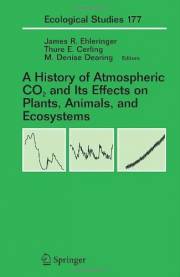
Based in extensive research in geology, atmospheric science, and paleontology, this book offers a detailed history of CO2 in the atmosphere, and an understanding of factors that have influenced changes in the past. The text illuminates the role of atmospheric CO2 in the modern carbon cycle and in the evolution of plants and animals, and addresses the future role of atmospheric CO2 and its likely effects on ecosystems.
Read more...
Author: Steven Pinker | Year: 2008
Author: Steven Pinker | Year: 2013
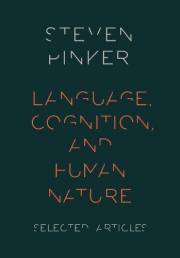
Language, Cognition, and Human Nature collects together for the first time much of Steven Pinker's most influential scholarly work on language and cognition. Pinker's seminal research explores the workings of language and its connections to cognition, perception, social relationships, child development, human evolution, and theories of human nature.
Read more...
Author: Steven Pinker | Year: 2011
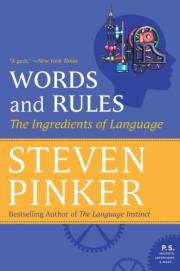
Steven Pinker, author of the landmark bestsellers The Language Instinct, How the Mind Works, and The Blank SlateÔÇöand one of the worldÔÇÖs leading cognitive scientistsÔÇöand offers an eye-opening explanation of how human beings learn and use language in Words and Rules. First published in 2000, Words and Rules remains one of PinkerÔÇÖs most provocative and accessible books, illuminating the fascinating relationship between the brain, the mind, and the how language makes us human.
Read more...
Author: Steven Pinker | Year: 2010
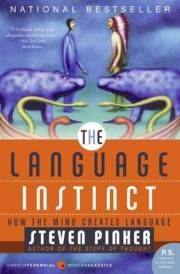
In this classic, the world's expert on language and mind lucidly explains everything you always wanted to know about language: how it works, how children learn it, how it changes, how the brain computes it, and how it evolved. With deft use of examples of humor and wordplay, Steven Pinker weaves our vast knowledge of language into a compelling story: language is a human instinct, wired into our brains by evolution. The Language Instinct received the William James Book Prize from the American Psychological Association and the Public Interest Award from the Linguistics Society of America. This edition includes an update on advances in the science of language since The Language Instinct was first published.
Read more...
Author: Steven Pinker | Year: 2011
Author: Steven Pinker | Year: 2003
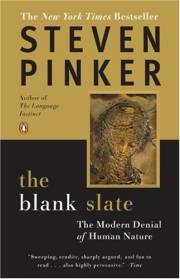
In The Blank Slate, Steven Pinker, one of the world's leading experts on language and the mind, explores the idea of human nature and its moral, emotional, and political colorings. With characteristic wit, lucidity, and insight, Pinker argues that the dogma that the mind has no innate traits-a doctrine held by many intellectuals during the past century-denies our common humanity and our individual preferences, replaces objective analyses of social problems with feel-good slogans, and distorts our understanding of politics, violence, parenting, and the arts. Injecting calm and rationality into debates that are notorious for ax-grinding and mud-slinging, Pinker shows the importance of an honest acknowledgment of human nature based on science and common sense.
Read more...
Author: Steven Pinker | Year: 2011
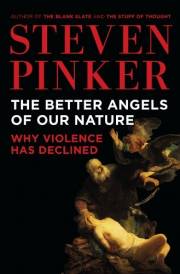
Believe it or not, today we may be living in the most peaceful moment in our species' existence. In his gripping and controversial new work, New York Times bestselling author Steven Pinker shows that despite the ceaseless news about war, crime, and terrorism, violence has actually been in decline over long stretches of history. Exploding myths about humankind's inherent violence and the curse of modernity, this ambitious book continues Pinker's exploration of the essence of human nature, mixing psychology and history to provide a remarkable picture of an increasingly enlightened world.
Read more...
Author: Stephen Law | Year: 2006
Author: Stephen Law | Year: 2012
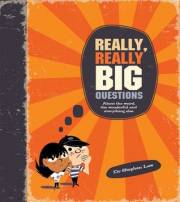
Have you ever looked at your dog and wondered what it is really thinking? Or asked yourself if your entire life has been a dream? Prepare to exercise your mind as you investigate these big ideas and more on the roller-coaster ride of reason and ridiculous that is philosophy. Cool illustrations, brainteasers, and quirky quotations add to the simple and fun question-and-answer format, introducing readers to life's important questions.
Read more...
Author: David Sloan Wilson, Robert Kadar, Joe Brewer | Year: 2015
We agree with Biglan that a new Powell memo is in order. In other words, a cooperative effort is required to establish a new economic paradigm that will improve the quality of life for society as a whole, not just a privileged faction.
Read more...
Author: Anthony Biglan | Year: 2015
Is it possible that evolutionary theory can explain how the U.S. came to have the highest levels of child poverty and economic inequality of any developed nation? I think it can. It also can help us evolve a more nurturing form of capitalism, one in which people are more caring and productive, and they place greater value on the wellbeing of every member of society.
Read more...
Author: New Scientist | Year: 2015
Orthodox economics is broken. Applying what we know about evolution, ecology and collective behaviour might help us avoid another catastrophe.
Read more...
Author: Edwina Rogers | Year: 2015
What is the Secular Policy Institute? What work do we do and why is it important? How does faith-based reasoning affect laws in the US Congress and internationally?
Read more...
Author: criticallythinking | Year: 2015
Are you asking your local representatives to make a proclamation, such as resolution to support a National Day of Reason? Here's a list of US state deadlines to get your request in by.
Read more...
Author: Emma Green | Year: 2014
Chalk up a win today for pluralism. On Friday, the Pew Research Center released a report on the countries with the most and least religious diversity, and the resultsat least at first glanceare what you might expect some of the least religiously diverse countries also experience some of the most religious violence
Read more...
Author: Jack Vance | Year: 2014
There is some evidence that certain indicators of religiosity appear to be going through a slight decline in the United States. That is the good news. The bad news is that the size of the apparent decline in most of these indicators is quite small and tends to be limited to comparisons between generational cohorts (e.g., the so-called Millennials aged 18-29 vs. other generations). And the really bad news is that some of us (and I can find fault with myself here too) seem determined to spin the numbers as being far more meaningful than they probably are.
Read more...
Author: David Wolf | Year: 2013
After more than 10,000 votes from over 100 countries, the results of ProspectÔÇÖs world thinkers 2013 poll are in. Online polls often throw up curious results, but this top 10 offers a snapshot of the intellectual trends that dominate our age.
Read more...
Author: Gregory Paul and Phil Zuckerman | Year: 2011
Long after blacks and Jews have made great strides, and even as homosexuals gain respect, acceptance and new rights, there is still a group that lots of Americans just dont like much: atheists. Those who dont believe in God are widely considered to be immoral, wicked and angry in other words, nonbelievers are one minority still commonly denied in practical terms the right to assume office despite the constitutional ban on religious tests.
Read more...
Author: Paul Bloom | Year: 2008
"Many Americans doubt the morality of atheists. According to a 2007 Gallup poll, a majority of Americans say that they would not vote for an otherwise qualified atheist as president, meaning a nonbeliever would have a harder time getting elected than a Muslim, a homosexual, or a Jew. Many would go further and agree with conservative commentator Laura Schlessinger that morality requires a belief in God..."
Read more...
Author: Adam Brown | Year: 2012
I will look at the political views of active atheists and non-religious people in America and show that there is a preponderance to be towards the left (Democratic) side of the political spectrum and why this alignment occurs. It will also become clear that the more religiously motivated a political position, the more united and fervent the atheists in America are in opposition to it
Read more...
Author: Gregory Paul | Year: 2010
ÔÇ£In their new book, ÔÇÿAmerican Grace,ÔÇÖ Robert D. Putman and David E. Campbell make two assertions about the decline of religious affiliation in the United States, which they summarize in their Oct. 17 Times Op-Ed article, ÔÇ£Walking away from the church.ÔÇØ They correctly observe that Americans, especially the youngest generations, are rapidly losing a lot of their faithÔǪÔÇØ
Read more...
Author: Gregory Paul | Year: 2010
It has become fashionable to assert that, far from being dead, belief in God is so deeply ingrained in the human psyche that it is universal and perpetual. This opinion influences the thinking of theists and scientists alike Yet a growing body of psychosociological research has already overturned conventional wisdom as it uncovers the actual leading cause of popular faith: dysfunctional socioeconomic conditions.
Read more...
Author: Gwynne Dyer | Year: 2011
In the United States, where it is almost impossible to get elected unless you profess a strong religious faith, it would have passed completely unnoticed. Not one of the 100 U.S. senators ticks the No Religion/Atheist/Agnostic box, for example, although 16 per cent of the American population do. But it was quite remarkable in Britain
Read more...
Author: Kiera Feldman | Year: 2014
The security guards were bored. It was the first weekend of May 2010a time when students at other universities were partying before finals. This, however, was Patrick Henry College (PHC), the elite evangelical school better known as Gods Harvard. Here, in sleepy Purcellville, Virginia, instead of police officers or rent-a-cops, the security guards were all upperclassmen
Read more...
Author: Laurie Goodstein | Year: 2013
ÔÇ£In the small but cohesive Mormon community where he grew up, Hans Mattsson was a solid believer and a pillar of the church. He followed his father and grandfather into church leadership and finally became an ÔÇÿarea authorityÔÇÖ overseeing the Church of Jesus Christ of Latter-day Saints throughout Europe.ÔÇØ
Read more...
Author: Jim Hinch | Year: 2014
Just 10 years ago, evangelical Christianity appeared to be Americas dominant religious movement. Evangelicals, more theologically diverse and open to the secular world than their fundamentalist brethren, with whom theyre often confused, were on the march toward political power and cultural prominence
Read more...
Author: Jessica Martinez | Year: 2013
Josh McDowell, an apologist and evangelist, spoke at Southern Evangelical Seminarys Christian Apologetics conference on three culture changes that create a perfect storm that challenges and poses a threat to the church. McDowell says the first is an epistemological shift that is occurring regarding Biblical truths due to modern perspectives on Gods word
Read more...
Author: Alesha Williams Boyd and Sergio Bichao | Year: 2011
The New Jersey co-op is among hundreds of secular and inclusive home-schooling groups in the USA aimed at providing opportunities for parents to network and for children to socialize, conduct science experiments, play sports and games and more, according to Homeschool World, the website of Practical Homeschooling Magazine. Secular organizations across the country report their numbers are growing. Though government records indicate religion is still the driving force in home schooling
Read more...
Author: Gregory Paul | Year: 2010
ÔÇ£In their new book, ÔÇÿAmerican Grace,ÔÇÖ Robert D. Putman and David E. Campbell make two assertions about the decline of religious affiliation in the United States, which they summarize in their Oct. 17 Times Op-Ed article, ÔÇ£Walking away from the church.ÔÇØ They correctly observe that Americans, especially the youngest generations, are rapidly losing a lot of their faithÔǪÔÇØ
Read more...
Where: The Chronicle of Philanthropy | Year: 2015
SPI Fellow David Sloan Wilson writes on philanthropy.
Read more...
Where: Alabama Law Review | Year: 2015
In Town of Greece v. Galloway, the Supreme Court upheld a legislative prayer practice with overwhelmingly Christian prayers in part because the Court concluded that the exclusion of all other religions was unintentional. This requirement ÔÇö that a religiously disparate impact must be intentional before it amounts to an establishment violation ÔÇö is new for Establishment Clause doctrine. An intent requirement, however, is not new for equal protection or free exercise claims. This Essay explores the increased symmetry between the Establishment Clause, the Equal Protection Clause, and the Free Exercise Clause. It argues that many of the critiques of the intentional discrimination standard made in the equal protection context apply in the establishment context. It also argues that free exercise and establishment jurisprudence still differ substantially despite their superficial symmetry.
Read more...
Where: California Law Review Circuit, Vol. 103, 2015 | Year: 2015
The Supreme Court has been taking advantage of mixed speech ÔÇô that is, speech that is both private and governmental ÔÇô to characterize challenged speech in the way that ultimately permits the government to sponsor Christian speech. In Pleasant Grove City v. Summum, a free speech case where the government accepted a Christian Ten Commandments monument but rejected a Summum Seven Aphorisms one, the Court held that privately donated monuments displayed in public parks were government speech as opposed to private speech and therefore not subject to free speech limits on viewpoint discrimination. In Town of Greece v. Galloway, an establishment case where the local government invited overwhelmingly Christian clergy to give a prayer before town meetings, the Court found no Establishment Clause violation in part because it attributed constitutionally troubling aspects of the speech to the private speakers rather than to the government.
Read more...
Where: Philosophy and Theology | Year: 2009
ÔÇ£The primary purpose for his analysis is to inform those interested in the theodicy problem about the demographic statistics that detail the full extent and causes of suffering and death of immature humans caused by nonhuman agencies over history that are typically labeled as ÔÇ£natural evilÔÇØ. We can test these hypotheses by examining the statistics of death on Earth, and in the alternate proposals regarding the ultimate destination of innocent souls. In other words, Heaven or Hell.ÔÇØ
Read more...
Where: Evolutionary Psychology | Year: 2009
Better understanding the nature, origin and popularity of varying levels of popular religion versus secularism, and their impact upon socioeconomic conditions and vice versa, requires a cross national comparison of the competing factors in populations where opinions are freely chosen. Utilizing 25 indicators, the uniquely extensive Successful Societies Scale reveals that population diversity and immigration correlate weakly with 1st world socioeconomic conditions
Read more...
Where: Evolutionary Psychology | Year: 2010
There are systemic features of contemporary Christianity that create an almost invisible class of non-believing clergy, ensnared in their ministries by a web of obligations, constraints, comforts, and community. Exemplars from five Protestant denominations, Southern Baptist, United Church of Christ, Presbyterian, Methodist and Church of Christ, were found and confidentially interviewed
Read more...
Where: American Sociological Review | Year: 2006
atheists are less likely to be accepted, publicly and privately, than any others from a long list of ethnic, religious, and other minority groups. This distrust of atheists is driven by religious predictors, social location, and broader value orientations. It is rooted in moral and symbolic, rather than ethnic or material, grounds
Read more...
Where: Journal of Personality and Social Psychology | Year: 2011
A broad sample of American adults revealed that distrust characterized anti-atheist prejudice but not anti-gay prejudice. In subsequent studies, distrust of atheists generalized even to participants from more liberal, secular populations. A description of a criminally untrustworthy individual was seen as comparably representative of atheists and rapists
Read more...
Where: Mental Health, Religion and Culture | Year: 2011
The present study examined mental well-being, utilising the full range of certainty of belief or non-belief in God. In the first study, we compared church and secular group members on measures of life satisfaction and emotional stability. The second study used a large survey of the non-religious.
Read more...
Where: PLoS Medicine | Year: 2008
This study aimed to investigate trends in county mortality and cross-county mortality disparities, including the contributions of specific diseases to county level mortality trends There was a steady increase in mortality inequality across the US counties between 1983 and 1999, resulting from stagnation or increase in mortality among the worst-off segment of the population
Read more...
Where: IMF Staff Discussion Note | Year: 2013
This Staff Discussion Note examines the specific macro-critical features of womens participation in the labor market, the constraints preventing women from developing their full economic potential, and possible policies to overcome these obstacles. Implementing policies that remove labor market distortions and create a level playing field for all will give women the opportunity to develop
Read more...
Where: Cornell University | Year: 2014
Using data from the General Social Survey, we measure the effect of education and Internet use on religious affiliation. We find that Internet use is associated with decreased probability of religious affiliation Internet use could account for 5.1 million people with no religious affiliation, or 20% of the observed decrease in affiliation relative to the 1980s
Read more...
Where: Journal of Contemporary Religion | Year: 2012
ÔÇ£The present study examines perceived discrimination faced by religious ÔÇÿnonesÔÇÖ. After distinguishing between atheists, agnostics, and ÔÇÿnonesÔÇÖ who are deists or theists, we use nationally representative data from the 2008 American Religious Identification Survey (ARIS) to study the contexts in which these various types of religious ÔÇÿnonesÔÇÖ have reported experiencing discriminationÔǪÔÇØ
Read more...
Where: Psychological Science | Year: 2007
Violent people often claim that God sanctions their actions. In two studies, participants read a violent passage said to come from either the Bible or an ancient scroll. For half the participants, the passage said that God sanctioned the violence. Next, participants competed with an ostensible partner on a task in which the winner could blast the loser with loud noise through headphones (the aggression measure)
Read more...
Where: Cross-Cultural Research | Year: 2011
According to the uncertainty hypothesis, religion helps people cope psychologically with dangerous or unpredictable situations The author predicts that religious belief would decline in economically developed countries where there is greater existential security, including income security (income equality and redistribution via welfare states) and improved health
Read more...
Where: Evolution | Year: 2012
American resistance to accepting evolution is uniquely high among First World countries. This is due largely to the extreme religiosity of the United States, which is much higher than that of comparably advanced nations, and to the resistance of many religious people to the facts and supposed implications of evolution. The prevalence of religious belief in the United States suggests that outreach by scientists alone will not have a huge effect in increasing the acceptance of evolution
Read more...
Where: Journal of Religion and Society | Year: 2009
Previous research has shown an apparent relationship between societal health and religiosity, with nations that exhibit higher mean personal religiosity also tending to provide worse social environments. A possible cause is that exposure to stressful situations (i.e. personal insecurity) increases personal religiosity
Read more...
Where: French Historical Studies | Year: 2008
During the First Crusade (109599) the Franks cannibalized the Muslim dead at the city of Ma`arra. More than a dozen narrative sources describe this act, but with significant differences in detail this article suggests that cannibalism was in part a product of necessity but also that the crusaders used it as a tool of psychological warfare.
Read more...
Where: Sociology Compass | Year: 2009
ÔÇ£What do we currently know about atheists and secular people? In what ways are atheism and secularity correlated with positive societal outcomes? This article offers a thorough presentation and discussion of the latest social scientific research concerning the identities, values, and behaviors of people who donÔÇÖt believe in God or are non-religious, and addresses the ways in which atheism and secularity are positively correlated with societal well-being.ÔÇØ
Read more...
Where: East Tennessee State University | Year: 2012
...This study analyzes data from a random, national survey of adults to examine the empirical connections between perceptions of science and secular identities in the United States. Analyses demonstrate that perceptions of science correlate strongly with American secularism, particularly among atheists and agnostics...
Read more...
Year: 2015
Most Americans ÔÇô who live in a country with a relatively small Muslim population ÔÇô say they know little or nothing about Islam.
Here are answers to some key questions about Muslims, compiled from several Pew Research Center reports published in recent years.
Read more...
Year: 2015
A recent poll, commissioned by the Icelandic Ethical Humanist Association, finds that 0% of people in Iceland believe that God created the Earth.
Read more...
Year: 2015
The Woolf Institute here publish a report on religious belief as a driving force in British society today. In September 2013, the Woolf Institute convened an independent commission to under take over a two-year period the first systematic review of the role of religion and belief in the UK today and to make policy recommendations.
Read more...
Year: 2015
The International Humanist and Ethical Union: IHEU produces the Freedom of Thought Report, the only annual survey looking at the rights and treatment of the non-religious in every country in the world.
Read more...
Year: 2016
Public policy recommendations and findings on demographic trends from the foremost fellows at the Secular Policy Institute, the world's largest and most prestigious coalition of secular groups and think tank of secular fellows.
Read more...
Year:
What does "critical thinking" mean? Today the term is used in a too-often nebulous manner, and the importance of real critical thinking is lost on
Read more...
Year: 2015
Secular people form an important voting bloc. Who are we? Where do we live? How do we vote? You'll find all the answers in this comprehensive guide for politicians.
Read more...
Year: 2015
Politicians in the United States may not even know that the secular movement exists. The Secular Policy Institute seeks to inform them with the Secular
Read more...
Year: 2015
Despite the existence of hundreds of thousands of secular non-profit organizations in the United States, and more that would be created by funding, American faith-based organizations (FBOs) receive $210 billion each year from federal and states sources to provide services with the assumption that they will not proselytize or discriminate. However, this assumption is naïve and misplaced. This original report by the Secular Policy Institute exposes abuse in the Faith-Based Initiative system.
Read more...
Year: 2014
This handy 2-page guide by the Secular Policy Institute lists how religious each US state is, grouping them into secular liberal, secular conservative, moderate, and
Read more...
Year: 2012
How religious is each country? This handy Secular Policy Institute 2-pager lists them all, with data taken from the WIN-Gallup International ÔÇô Global Index of
Read more...
Year: 2013
a strong majority (74%) of U.S. adults do believe in God, this belief is in decline when compared to previous years as just over four in five (82%) expressed a belief in God in 2005, 2007 and 2009. Also, while majorities also believe in miracles (72%, down from 79% in 2005), heaven (68%, down from 75%) these are all down from previous Harris Polls.
Read more...
Year: 2012
atheists are a small minority in the early years of 21st century. Only 13% say they are atheists. They are mostly concentrated in East Asia where 47% of the Chinese and 31% of the Japanese say they are atheists; and Western Europe, 14% of whose population says the same. Elsewhere sizeable majorities claim to be religious; the global average is 59%
Read more...
Year: 2011
ÔÇ£ÔǪone half (51%) of global citizens definitely believe in a ÔÇÿdivine entityÔÇÖ compared to 18% who donÔÇÖt and 17% who just arenÔÇÖt sure. Similarly, half (51%) believe in some kind of afterlife while the remaining half believe they will either just ÔÇÿcease to existÔÇÖ (23%) or simply ÔÇÿdonÔÇÖt knowÔÇÖ (26%) about a hereafter. Lastly, the survey revealed that four in 10 (41%) believe in human evolution compared to 28% who believe in creationismÔǪÔÇØ
Read more...
Year: 2014
One year into his pontificate, Pope Francis remains immensely popular among American Catholics and is widely seen as a force for positive change within the Roman Catholic Church. More than eight-in-ten U.S. Catholics say they have a favorable view of the pontiff, including half who view him veryfavorably
Read more...
Year: 2014
half of Millennials (50%) now describe themselves as political independents and about three-in-ten (29%) say they are not affiliated with any religion. These are at or near the highest levels of political and religious disaffiliation recorded for any generation in the quarter-century that the Pew Research Center has been polling on these topics
Read more...
Year: 2014
The share of countries with a high or very high level of social hostilities involving religion reached a six-year peak in 2012, according to a new study by the Pew Research Center. A third (33%) of the 198 countries and territories included in the study had high religious hostilities in 2012, up from 29% in 2011 and 20% as of mid-2007
Read more...
Year: 2014
Several years ago, the Pew Research Center produced estimates of the religious makeup of more than 200 countries and territories As part of the next phase of this project, Pew Research has produced an index that ranks each country by its level of religious diversity.
Read more...
Year: 2012
One-fifth of the U.S. public  and a third of adults under 30  are religiously unaffiliated today, the highest percentages ever in Pew Research Center polling. In the last five years alone, the unaffiliated have increased from just over 15% to just under 20% of all U.S. adults. Their ranks now include more than 13 million self-described atheists and agnostics (nearly 6% of the U.S. public), as well as nearly 33 million people who say they have no particular religious affiliation (14%)
Read more...
Year: 2013
ÔÇ£ÔǪsix-in-ten Americans (60%) say that ÔÇÿhumans and other living things have evolved over time,ÔÇÖ while a third (33%) reject the idea of evolution, saying that ÔÇÿhumans and other living things have existed in their present form since the beginning of time.ÔÇÖ The share of the general public that says that humans have evolved over time is about the same as it was in 2009ÔǪÔÇØ Religious Hostilities Reach Six-Year High (2014) Global Religious Diversity (2014)
Read more...











